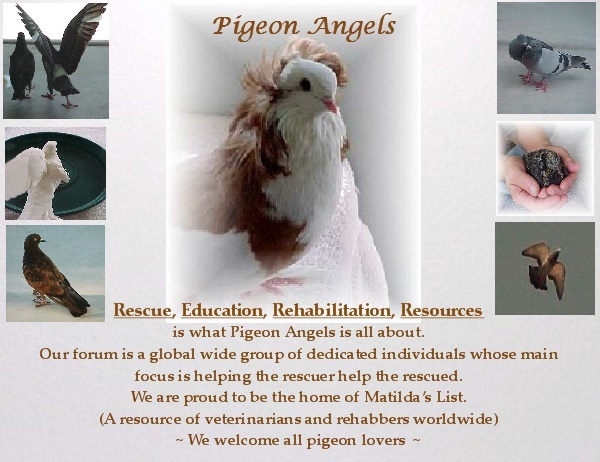Dairy Products and Birds
We always are receiving questions about dairy products and birds. What forms are acceptable to offer to pet birds? Which dairy items should not be offered and why? Because there are always on-going questions, we thought it was time to go over the dairy dos and don'ts!
Birds are not mammals. While birds are warm-blooded animals, they hatch out of eggs. Pregnant female mammals provide nourishment to their young through the placenta. Once the infant mammals are born, the mother produces colostrum, which contains many antibodies and supplies the newborns with essential nutrients for the first few days of life. Next, the mother produces milk, which is a combination of water, carbohydrates, fats, proteins, minerals, vitamins and other components. Baby mammals receive their complete nourishment from mother's milk for variable periods of time after birth. Mammals have enzymes (lactase) specifically designed to digest lactose, or milk sugar. Birds, however, are a completely different story.
Bird embryos are enclosed in an egg during incubation. This means that when the egg is laid, it must contain all the nutrients and fluids necessary to sustain the bird until it hatches. Once it hatches, the parent birds regurgitate foods that they have eaten to feed the chicks, as they do not produce milk. The food is stored in the crop, an outpouching of the esophagus. In some species of bird, such as the pigeon, the lining of the crop sloughs off, and is fed to the chicks. This is called crop milk, and which is a misnomer, as there are none of the components of mammalian milk as ingredients. Interestingly, both the male and female pigeon and dove produce crop milk. Like mammalian milk, crop milk is very rich in fat and protein, but unlike mammalian milk, it lacks carbohydrates and calcium. The chicks receive crop milk for the first few days after hatching, but later, they are fed increasing amounts of other types of food. Crop milk has no milk sugars in it whatsoever.
It makes sense, then, that milk and products containing milk would be totally foreign food items to a bird that spends its time in the rainforests and jungles of the world. Birds eat seeds, nuts, fruits, vegetables, shoots, leaves, blossoms, nectar, flower petals and such. Nowhere in its natural environment would it ever be exposed to milk, cheese, yogurt or other products containing milk. It should also make sense that birds would not have developed the enzymes necessary to digest milk sugar, lactose.
What happens if a bird ingests milk or products containing lactose, the milk sugar? Since it doesn't have the enzymes necessary to digest lactose, it will often pass through the bird's digestive tract unchanged. Because it is a foreign sugar, it may draw fluids into the intestinal tract, resulting in diarrhea, if ingested in large amounts. Small amounts of milk and products containing lactose are probably not harmful to most birds.
Some milk products do not contain lactose, such as cottage cheese and other types of cheese. Generally, it is thought that it is safe to offer yogurt and cheese, although products that contain lactose are probably safe, if offered in small amounts. Interestingly, live culture yogurt does contain lactose when it is produced; however the live organisms in the yogurt consume the lactose, eventually removing the lactose entirely from the yogurt before it is consumed! Cheese products with onions or garlic in them are best avoided, because of the risk of Heinz body hemolytic anemia.Many bird owners, it seems, enjoy spending time in the mornings with their pet birds. Often, a bird may want to share breakfast with an owner. We get many questions about whether or not it is alright for a bird to share a little cold breakfast cereal and milk, or oatmeal made with milk. If the bird is just ingesting a small amount of milk, this should pose no problems for the bird. But, caffeinated morning drinks should be off-limits to birds, with or without milk added.
There is some concern about some soft cheeses potentially causing crop impaction in birds. While I have never seen this occur (and I do feed my two greys and Meyer's parrot mozzarella cheese almost every day), this may be more related to the volume of the soft cheese being consumed than anything else. So, when choosing foods to offer to your bird, use common sense, and don't provide one type of food in abundance or to the exclusion of all others. If you have any questions, always ask your avian vet for advice related to diet tailored for your specific bird.
I have been asked about the possibility of giving a bird a commercially available product developed for lactose-intolerant humans. The answer to that question is a resounding NO. The two compounds that lactose is broken down into by these products are toxic to birds!
While dairy products can provide a bird with necessary nutrients such as calcium and vitamin D3, we should choose carefully what items we offer to our pet birds, to ensure their safety. When in doubt, check with your avian vet regarding safe and appropriate food items to share with your bird.
Copyright © 2006 Margaret A. Wissman, D.V.M., D.A.B.V.P.
All Rights Reserved
ExoticPetVet.net
www.exoticpetvet.net

